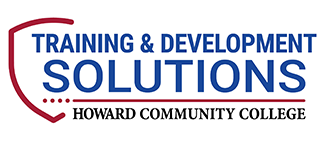
Training Trends
News Headlines
By: Claire Tse, Training & Development Solutions Instructor
By definition, emotional intelligence is the ability to understand, use, and manage your own emotions in positive ways to relieve stress, communicate effectively, empathize with others, overcome challenges, and defuse conflict. It’s a driver in how you build interpersonal relationships, set the shared vision, pursue and achieve performance goals, and make critical decisions. Here, Training & Development Solutions instructor Claire Tse addresses the four components of emotional intelligence, how they intersect and overlap, and why Emotional Intelligence in the workplace is viewed today as an essential — rather than a soft — leadership skill.
There are four components to emotional intelligence:
- Self-awareness defines your ability to recognize, identify, and assess your emotions and their effects. It is an acknowledgement of how you react to particular environments or situations, recognizing how emotional reactions impact your ability to do your job or achieve your goal.
- Self-management is when you manage your emotional state to translate your self-awareness into action. Once you amplify self-awareness and understand your behavioral tendencies that typically occur in specific environments or situations, you can act more effectively and intentionally.
- Social awareness captures your ability to understand the emotions of others plus the organizational culture and politics.
- Relationship management concentrates on your ability to build rapport with others, mentor and coach others, manage conflict, and “me + you = we” social awareness in the equation.
“Very often, the four components of emotional intelligence intersect and overlap,” said Claire Tse, a Training & Development Solutions instructor, who teaches Emotional Intelligence courses to a wide range of clients. “All four dynamics are important as multigenerational individuals merge together to become a team. The emotional intelligence of each person on the team is going to impact how roles and responsibilities are assigned, how decisions are made, how difficult conversations take place and conflict is resolved, and ultimately, how successful the team will be in achieving its goals.”
Another workplace dynamic bringing the importance of emotional intelligence to the surface is when someone gets promoted into a management-level position.
“Those promoted to management have to make a giant shift from the ones who do the work to the ones who lead the work, and are also responsible for influencing others,” said Claire. “So often, these promotions take place without confirming if the new manager is empathetic or has the right mindset to manage people effectively.”
This is where Emotional Intelligence (“EQ”) training proves to be a worthwhile investment for many organizations. EQ helps middle managers up to executive leaders, who are often focused on daily operations, understand why managing and caring about their people is strategically essential as getting X, Y, and Z done on their daily tactical to-do lists. EQ guides them on how to identify emotional intelligence strengths and opportunities plus encourages them to think about how to respond to complex environments and personnel situations in new ways.
“I make it a point to introduce a new concept to daily application activity every 10 to 12 minutes during emotional intelligence training,” said Claire. “Sometimes we focus on real-world scenarios and experiences that occurred and brainstorm practical solutions. Other times, I will show a video to get people thinking about how to resolve conflict in a way they never considered before. Journaling is often in the mix too, to encourage participants to think and write freely about their views as a form of self-awareness.”
Claire says shift in workplace dynamics that took place in the midst of the COVID-19 pandemic has underscored the increased value of Emotional Intelligence. Effective leaders pay attention to people — listening and caring about them as human beings is truly an essential leadership skill — not a soft skill.
“When people were working from home and isolated for long periods of time, they genuinely appreciated when their supervisor took a few minutes to ask how they were holding up and if their family was in good health, before diving into the agenda for the call,” explained Claire. “It’s about being a decent human being, and acknowledging there is more to the person on the other side of the phone call or video chat than the work that needs to get done that day. All work is done by people, so EQ matters.”
